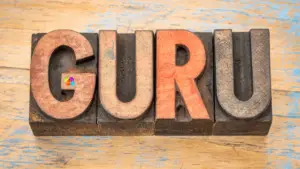The call came through from the recruiter or company owner, you got your foot in the door, great work. So… depending on the type of person you are you’re either planning on winging it (you know your stuff they are lucky you are attending!) or you’re going to diligently find out about the company and prep to ensure your delivery is flawless! Or perhaps you sit somewhere in between. Hold the phone! There may be something useful amongst the below.
I should say for those of you new to my posts I have spent 22 years in recruitment and have carried out plenty of interviews myself and sat on the interview panel for many of our clients. Over that time some key elements have come through from the best interviews whether they were at Graduate level or for senior C-Suite appointments.
Brass Tacks
Here is the absolute crux of the matter, you were requested to come to this initial interview on the back of your Linkedin profile, recommendation, or your resume, whatever the path the invitation took, it boils down to your securing the invite on the back of your previous experience and qualifications. Ergo your best opportunity to land this gig is to make sure you can convey said skills and experience in a coherent manner.
Sounds simple but I have honestly sat in interviews where an individual has researched the hell out of the company they are meeting with, they have looked at the website, read the blog, etc. What they failed to do was swot up on themselves. So how do you convey your experience in the best light?
Try all or some of the below, and fit them in with your own personality, they form the skeleton of a great interview experience.
Research
Not what you think… yes you should take some time to understand the business model of the company you are meeting with and do enough to show you have a genuine interest in the company you are meeting with but, I would argue 70% of your time should be spent on understanding yourself. What skills do you mention in your resume? For every skill, you should be in a position to talk concisely about your experiences and skills with an example: Where did you use this skill? What was the context of the project? What was the benefit to the organisation you delivered it for? What challenges did you overcome? Why did you choose that particular approach/technology? The reason you are in the room is your interviewer wants to know more about your abilities, not the fact you are able to read a company website.
The benefits of this approach are evident, you can display your value to the business in a factual way that doesn’t consist of hollow statements, and you also feel more comfortable in your conversations, with none of the sweaty palms that come with being put on the spot (why would an interviewer ask you about something not mentioned on your CV?) know yourself and you will nail your interview.
Qualify the position:
It’s no good providing stock answers to questions, we have heard it all before. If you don’t have a clear understanding of what the interviewer is hoping to hear you can’t tailor your response to ensure it addresses these points.
Now clearly they are not going to show all their cards but as early as possible in the interview, you should be trying to get a feel for the position (not the HR job spec). “I have had a good read through the job spec but it would be good to hear what a typical Monday to Friday looks like from the people who are actually doing it” (or similar is a great opener) paraphrase so it comes across as natural but this will enable you to pick up on some key elements of the role so later in the interview you can give examples of where you have experience that is relevant to these elements.
This approach also avoids a Gestapo-style question-answer session which is hard work for both the interviewer and the interviewee (I have sat through a number of them over the years!).
Confirm your understanding
Again another really basic thing but I see top-level executives get this wrong as often as Graduates. Answer the question you were asked. Sounds simple doesn’t it but I have been in interviews and received feedback from numerous line managers stating “they waffled”, “they couldn’t articulate their responses” “they spoke forever” I have even watched a fellow interviewer catch themselves as their eyelids became heavy as a potential employee danced around various topics hoping to get lucky.
The above approach to research means you won’t need to be a politician answering a question you weren’t asked. If you don’t know what you are being asked then seek to clarify, it’s a vital skill in any work environment and will make you look far more credible than a waffling response that doesn’t respond to the question you were posed.
Qualify your answers:
Stating you are good at something or have knowledge of a particular skill set is of little use if you don’t back the claim up with examples of where you have experience or academic knowledge of it – hence ‘know yourself and you will nail it’. Without context (which company?, what end client?, spend, etc.) it is simply your opinion. Be wary of rambling, give a concise answer that responds to the question, if you need to take a minute before you respond (do it!) and if you need clarification of what you’re being asked (ask!) better that than an irrelevant dialogue of some past event.
Also, be sure to qualify your response to the interviewer: “does that answer your question?” “do you need me to elaborate?” or similar. All too often I have seen good candidates miss out on roles because they didn’t showcase their skills effectively, qualifying your answers with the interviewer will ensure they have been allowed to explore your skills as much as possible. I frequently hear from applicants who attended interviews outside of Hurren and Hope who failed to land the gig “they didn’t ask me about that” the truth is many interviewers are line managers who hire once or twice a year they are actually not very good at interviewing so it’s important you make it easy for them. They will only ask the same question in a couple of different ways before they feel embarrassed asking you the same thing again and move on. So qualify!
Close your meeting:
A simple tool but very effective. The likelihood is you will be asked if you have any questions at the end of the meeting. It’s at this point a candidate will often sit there and think well I should come up with something! Usually something about holiday allowance, when will I hear, etc. This approach seems very simple but I have seen it work to great effect and used it myself on a number of occasions in meetings.
When asked if you have any questions or at an appropriate point as your meeting appears to be winding down ask “is there any reason you won’t be inviting me back for a 2nd interview?” or “Do you have any concerns over my ability to fulfill the role” whatever feels natural to you but effectively you are showing confidence in your abilities but also, more importantly, you are giving yourself a second crack of the whip if there were any elements they felt you were weaker on.
It may have been a simple misunderstanding in how you conveyed an answer that results in someone else landing the role. If you don’t ask you won’t know! Caution against appearing arrogant, if this feels like something you wouldn’t ask normally it may not be appropriate. Go with your gut.
Final thoughts
A good rapport and genuine fit with a company is vital. Often the basis for a good interview is a good recruiter that genuinely wants to deliver against your requirements and those of the employer, so if you feel like a square peg in a round hole, it could very well be true and the fact you won’t be walking off to the sunset together is a good thing. The above will however give both you and your potential employer a fair shake in making sure you have both explored all the angles.
Above all recognise an employer/employee relationship is like a marriage there is compromise but you are ultimately stronger together, being clear on what you need from the relationship though is vital so you may want to take a look at working out my ‘Working out your north star’ article.




